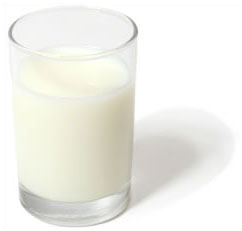more>>More News
- Year of the Rooster hosts two versions of 'Start o...
- Spring Festival in China

- Culture Insider: A compact history of women's powd...
- Traditional Chinese Medicine(TCM)
- The 24 Solar Terms
- THE GREAT WALL
- Mid-Autumn Day
- Chinese Ancient Garment
- DOUBLE SEVENTH FESTIVAL
- Chinese traditional dramas hit the big screen in H...

Fat-free milk may help ease hypertension
By admin on 2014-12-12

CM
NEWS - Women who drank more fat free milk and had higher
intakes of calcium and vitamin D from foods, and not supplements, tended to have
a lower risk for developing hypertension or high blood pressure, according to a
new study published in the American Heart Association journal,
Hypertension.
After examining the diets of nearly 30,000 middle-aged and
older women, Harvard researchers found that women who consumed more low-fat milk
and milk products and had diets higher in calcium and vitamin D from foods were
better protected against high blood pressure. When the researchers investigated
the benefits of milk specifically, they found women who drank two or more
servings of fat free milk each day reduced their risk for high blood pressure by
up to10 percent
compared to those who drank fat free milk less than once a
month. The same was not found for higher fat milk and milk products or calcium
and vitamin D supplement users.
One in three American adults has high blood pressure, and an increasing number of women are living with undiagnosed hypertension, according to a second study published in the journal Circulation. The last decade has seen significant increases in uncontrolled high blood pressure for women across the nation, a condition that puts them at serious risk for cardiovascular disease, stroke and even kidney failure.
Yet despite a vast body of research linking diet changes to blood pressure control, most Americans are still missing the mark on their diets. According to new research published in the Archives of Internal Medicine, Americans are ignoring the DASH (Dietary Approaches to Stop Hypertension) Diet, the therapeutic eating plan recommended by the National Heart Lung and Blood Institute that emphasizes low-fat dairy, fruits and vegetables to help reduce blood pressure levels.
Previous research has linked the DASH diet
and lowfat or fat free milk to blood pressure benefits – one reason why the U.S.
Dietary Guidelines for Americans recommend drinking three glasses of lowfat or
fat free milk each day. Milk provides nine essential nutrients, including
calcium, vitamin A, vitamin D, protein and potassium.
- Contact Us
-
Tel:
0086-571-88165708
0086-571-88165512E-mail:
admission@cuecc.com
- About Us
- Who We Are What we do Why CUECC How to Apply
- Address
- Study in China TESOL in China
Hangzhou Jiaoyu Science and Technology Co.LTD.
Copyright 2003-2024, All rights reserved




 Chinese
Chinese
 English
English
 Korean
Korean
 Japanese
Japanese
 French
French
 Russian
Russian
 Vietnamese
Vietnamese
